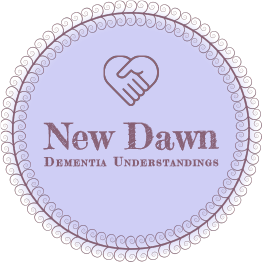PERSON CENTERED WHAT?
There’s a new buzz-phrase in town. Person Centered Care. I’m in favor of the “Person Centered” part of it, but not all phases of Dementia require “care”. While we have officially assigned 7 stages of Dementia, from a practical perspective we group those stages into 3 categories , Mild, Moderate, and Severe. Three stages but only one word to cover it all…Care. For example a person living with Dementia (PLWD) in the early/mild stage may simply require someone to collaborate with regarding what steps to take or changes to make in order to establish a plan which will enable them to live the life they’ve known as a functioning member of society for as long as possible. Perhaps their collaborator will check in with them as needed to see if things are going according to plan, or if changes need to be made. This isn’t care, it’s mutual collaboration. Could we call this phase Person Centered Collaboration?
As the Dementia progresses, PLWD may begin to need some assistance with certain tasks, such as paying bills, remembering appointments, or perhaps transportation. Operative word here is Assistance. Let’s call this Person Centered Assistance. Person Centered Assistance can be something as simple as a Post-It Note on their refrigerator for reminders or Automatic Bill-Pay through their bank. We don’t often think of a Post-It Note in the same category as a cane or pair of crutches, but just as a person with an injured foot needs a tool to assist them in carrying on with their functional life, a PLWD also needs certain tools to assist them. We can observe for changes and check-in and offer assistance as needed rather than be helicopter caregivers.
As a PLWD transitions into the late, more severe stage of their journey we often must step in to provide care which ensures that all needs are met and that they are living a personalized, dignified, quality life. They may need help with bathing, dressing and grooming, toileting, nutrition and hydration, and quality socialization. Finally, we can say Person Centered Care. Yes we should still be asking for their input in a collaborative manner and offering assistance with tasks they are still capable of performing with help, but in the latter stage the focus usually does shift to providing care, IE: doing for them what they can no longer do for themselves.
We need to observe in an unobtrusive manner and incline changes when, where, and as needed, not swoop in from the get-go. The stereotype of a PLWD being incapable of living their life with minimal (if any) assistance, from the time of diagnosis, is an unfortunate stigma brought about by old-school beliefs that only serve to accelerate a loss of function long before a natural progression of disability. Think “use it or lose it” here.
The word “care” isn’t a bad word but it can often imply invalid status. Please let’s not assign the word before its time.
